How to Make a Profit as a Bee Farmer
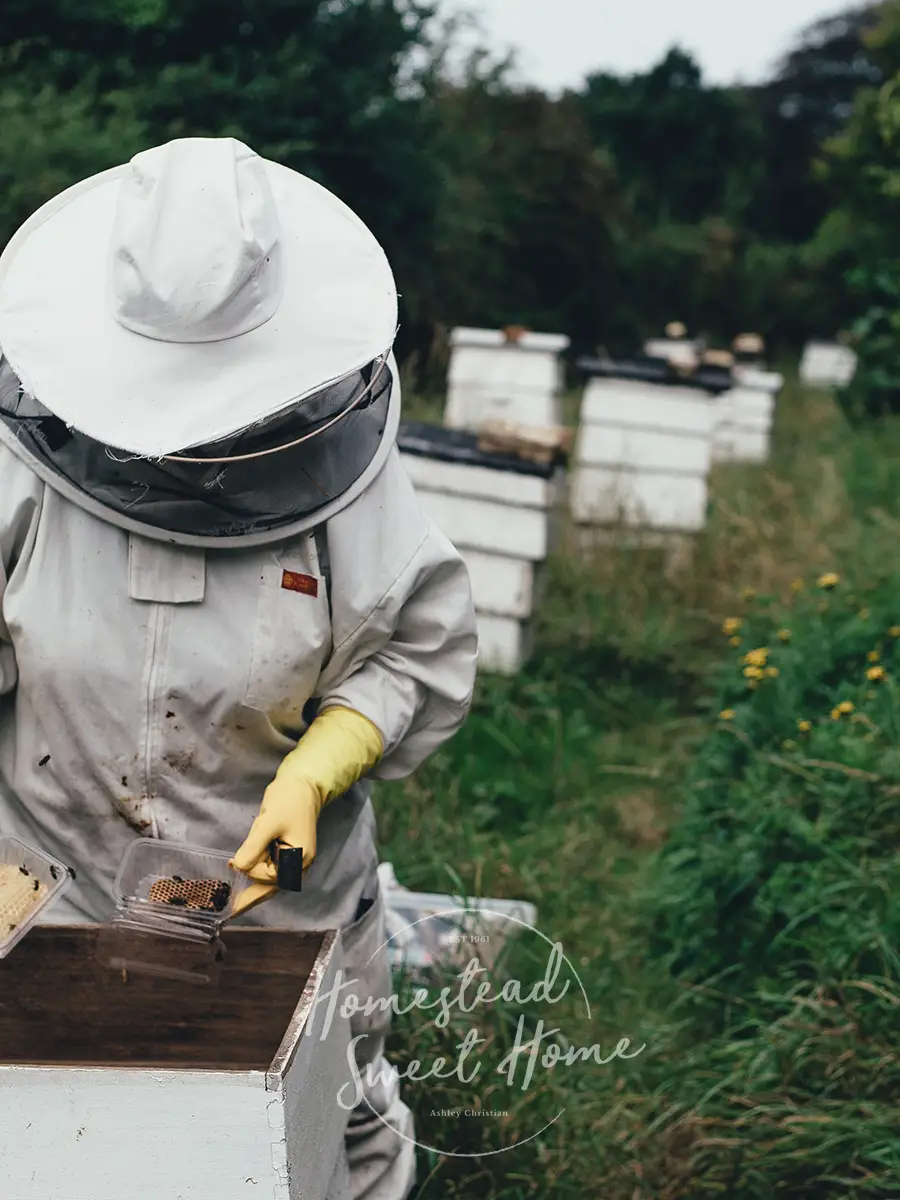
Can you be Profitable as a Bee Farmer?
You can be profitable as a bee farmer. The average annual salary for a bee farmer or commercial beekeeper in the United States is around $50,000.
However, no one can tell you with absolute certainty if you will be profitable as a bee farmer. There are simply too many variables, you being the biggest one! What I can tell you as a marketing consulate who has run multiple successful businesses and helped many others with theirs, is the biggest indicator of potential success is if there are other examples of success in your industry.
You may have a unique idea that you can’t find anyone else marketing and imagine yourself on Shark Tank making millions with your innovative, one-of-a-kind idea. The reality is creating a profitable business with a novel idea, is an exceedingly rare occurrence. If you have run successful businesses before, you can consider going for it. But if you are a first-time entrepreneur, the very best indicator that you can make money doing something, is if you see someone else making money doing it.
Too many want-to-be entrepreneurs start a business without confirming its market viability. Even seasoned entrepreneurs can make this mistake. I once worked with a well-established company that ordered 2 million dollars worth of inventory to expand their product to a new customer group, without vetting the idea in smaller quantities first. It was a disaster that nearly sunk their multi-million dollar company completely. I was brought in when they had a warehouse full of inventory they were having to sell at cost just to stay afloat.
The lesson from this is two-fold: test your idea before putting dollars into it, and look to see if there are other examples of success around you. The great news about starting a Beekeeping business—there are plenty of examples of success! I recommend as you are creating your business plan, that you study these models of success and watch closely what they are doing. You can take the successful ingredients and make your own recipe.
What is a Bee Farmer?
A hobbyist bee farmer is considered someone who has less than 300 hives. A commercial bee farmer is someone who has over 300 hives. You can potentially manage over a hundred hives by yourself with part-time work, though you may need to hire seasonal help to harvest honey. If you have more than a few hundred hives, they will require your full-time attention and possibly seasonally hired help.
If you are considering beekeeping as a career, it’s best to start with a handful of hives so you can learn to manage them without great risk of financial loss. Beekeeping can be a steep learning curve and it’s best to start small.
Who Will You Sell as a Bee Farmer?
When considering becoming a bee farmer and making a business out of beekeeping, you want to consider what products you will sell and who you’re selling them to. You can specialize in just a few products to one set of customers, or you can diversify and sell to multiple audiences.
When you bring your product to the market, it is so important to ask the question, “who am I selling to, and what problem do I solve for them?” As a marketing consultant, the biggest mistake I see new entrepreneurs making is that they make their business all about themselves, rather than their customers. It’s all about their experiences and expertise, and they spare no expense trying to look the part of a seasoned business owner. Instead, it should be all about your customer and meeting their needs.
Think about it like going on a first date. If you met someone and you were trying to get to know each other, what would you talk about? What would happen if you talked about yourself the entire time and never once showed interest in your date’s life, quirks, or problems? You would probably never get a second date.
As obvious as that illustration sounds, most new entrepreneurs make precisely this mistake. They go into their business with a fear of what people will think of them and if they come across as legitimate or not. Then their marketing becomes very one-sided and their messaging falls flat.
I’ll let you in on the biggest marketing and human behavior secret that just may change your life. People are not thinking about you. They are thinking about themselves. In your business plan, consider the main problems your customer is facing and how you can solve those problems for them and you can be wildly successful.
With this in mind as a bee farmer, ask yourself “who is my customer?” Beekeepers have four sets of natural customers they can sell to. Each set will be found in a different place, have different needs, and will require a different approach. You can sell to more than one customer group in your business, but I recommend you pick one market and really nail it before moving on to another.
Your markets as a bee farmer can be divided into these four categories: Consumers, Businesses, Beekeepers, and Farmers.
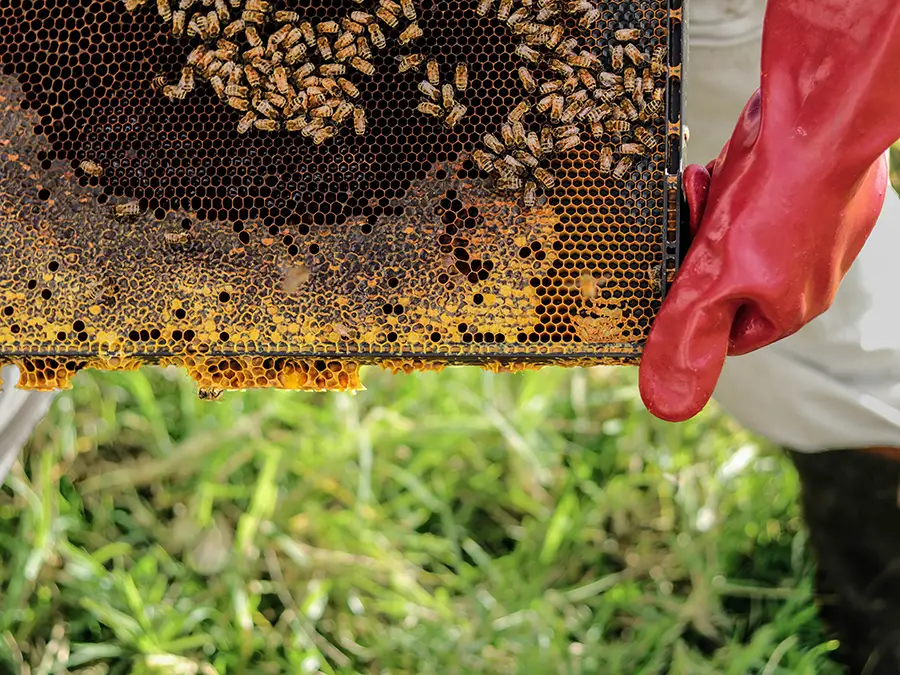
Consumers
This group will love to consume the products you create from bees. They are usually a very health concise group and are looking for the natural superpowers found in bee products to improve their health. This group is used to paying a premium price for organic products and places a high value on knowing where their food comes from and how it affects their bodies.
You will want to price and label your products according to the standard this group is used to. Transparency is a high-value commodity. Do not make the mistake of underpricing your organic small-farm bee products or this group will suspect your products are inferior. Educate your consumers on the various health benefits and uses of your bee products.
Think about your customer and ask yourself what problems do they have that you can solve, and where do they like to hang out? Local farmer’s markets, small or upscale grocery stores, and even gift shops would all be excellent brick-and-mortar locations to sell your products. You can also effectively market these products online with social media and your own Shopify or Etsy store.
If you don’t have online marketing abilities, it may be something you can learn. Or you can hire someone to help you. Or you can stick to the local brick-and-mortar sales and word of mouth if that is working for you.
If you are creating and marketing products for human consumption or for therapeutic use, you need to thoroughly research the laws that govern how you handle, label, and sell these items. Steering clear of making any health or disease claims on your website, labeling, or social media. A health claim is an unsubstantiated assertation that if you use a product, you will have a certain result. You could say something like “some studies have shown bee pollen can support seasonal allergies” instead of “bee pollen is an all-natural cure for allergies!”
Some of the bee products you can consider selling as a Bee Farmer are:
- Essential Oil infused non-toxic Beeswax Candles
- Bee Venom lotions, soaps, and creams. Check out our recommendation for bee venom recipes.
- Raw Local Honey
- Mead, which is a fermented honey wine
- Royal Jelly
- Bee Pollen
- Propolis crafted into Tinctures, ointments, or varnish
- Honey vinegar
- Flavored honey stix
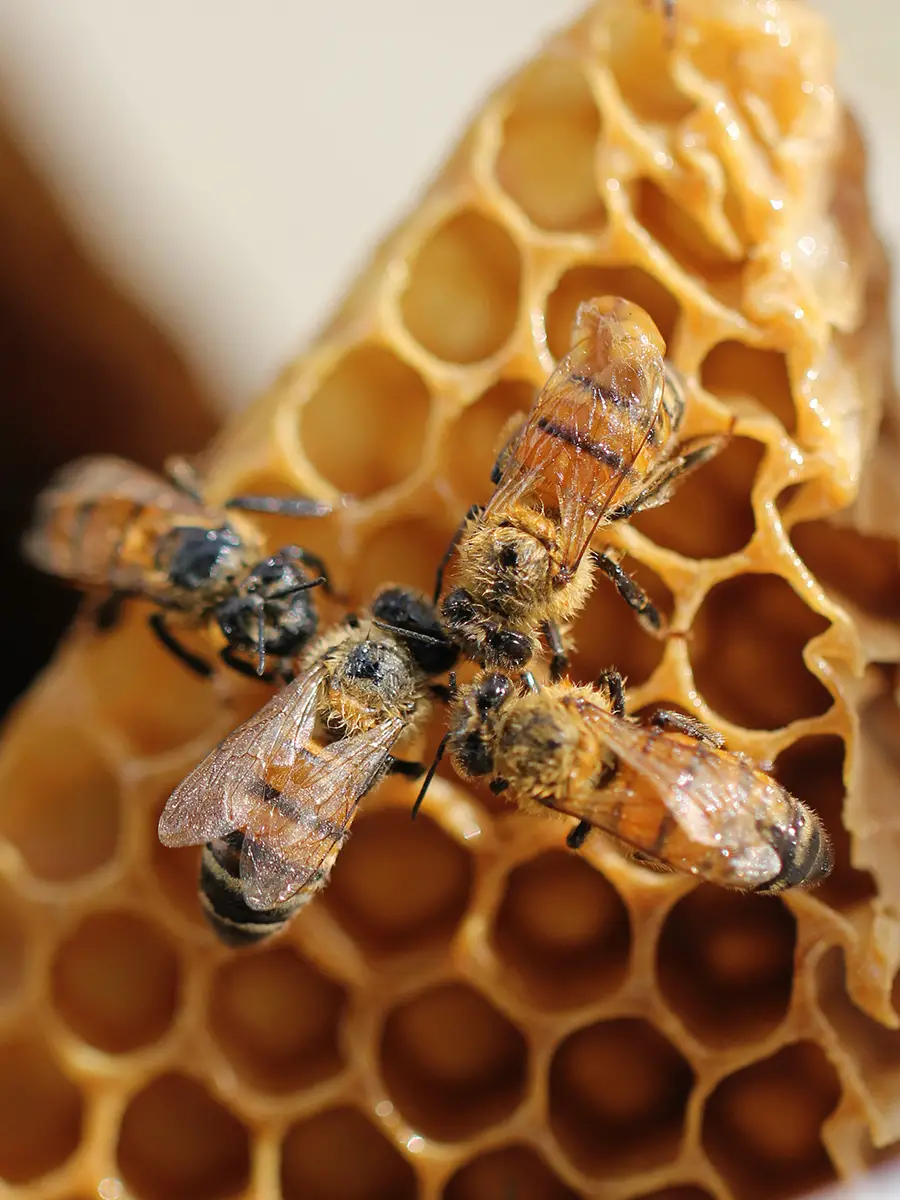
Companies
Also referred to as B2B or Business to Business sales can be a very uncomplicated way to sell your bee products for a profit. In general, you will have fewer clients who pay a lower price than consumers but will buy much larger quantities. These may take more work to initially find and contract with, but the payoff will be well worth it. Many companies look to small bee farmers to provide them with the building block bee materials they need to produce their own products.
You can connect with companies in two ways—by soliciting them yourself or by using a third-party brokerage. To solicit businesses you have to accumulate lots of no’s to earn a few yes’s. Typically you can pitch your product dozens of times before you find a good working relationship with a company that wants to buy your products. You have to go into it understanding that this perceived rejection is an integral part of the process.
Companies will look for markers like quality, and dependability, particularly if the relationship is to be long-term. Beekeeping can be open to many variables including weather, and not every year will be as productive as others. A company will want to see your production numbers averaged over several years so they will know you can meet their quota for a certain quantity of bee products each season.
You can also use a trade organization like Go 4 World Business or Thomas. You can also try searching Beeswax Buyer and following the leads you find. Think again as the companies you are courting as a first date. Research the company and understand its products. Why would they need to purchase from you, and what problem would you solve for them? Make it about meeting their needs, and you stand a much better chance at contracting with one of these companies.
- Some of the raw material companies are looking for are:
- Beeswax
- Propolis
- Bee Venom. Check out our recommendation for our favorite bee-safe venom collection device.
Bee venom is actually one of the most profitable items you can sell as a bee farmer. Bee venom takes special care to collect safely and can only be produced in very small quantities. Bee venom can sell for $100 per gram.
Beekeepers
Fellow beekeeping hobbyists are another viable market you can potentially sell to. This demographic’s needs are beekeeping supplies, live hives and queens, and beekeeping information. Beekeeping is becoming a wildly popular hobby for small farmers and homesteaders who are both fascinated by the world of bees, and interested in harvesting honey and other bee products for their family and friends. This customer group’s needs are high-quality supplies and hives and queens with good temperaments. They also need abundant information in their journey.
A new beekeeper is likely to be overwhelmed by the amount of information available to them and their biggest fear is messing it up, being attacked by bees, their hive dying, or wasting a bunch of money. Think about their needs and solve their unique problems as you create your marketing plan. Become obsessed with setting them up for success in the simplest and most straightforward way possible and your business is likely to thrive.
When you are considering selling to beekeepers, study other companies who are doing the same thing successfully. Use what they are doing, but with your own unique insights and strengths. You have something to bring to the table that our world needs. The most popular items to sell to beekeepers are:
- Beekeeping supplies
- Live hives and queens
- Beekeeping courses
In recent years there has been a substantial increase in global trade and tremendous accessibility to market those supplies on amazon. This has led to a sharp drop in beekeeping supply sales for some local business owners who cannot compete with the cheap labor and low prices offered by foreign companies.
Even locally based companies who sourced their materials overseas, are finding foreign companies are having the same product manufactured often at the same plant, but with their branding and are selling direct to consumer via Amazon, effectively cutting out the local business owner.
There are always exceptions, but there has been a big move for businesses selling to beekeepers away from supplies and focusing and selling bees and beekeeping courses.
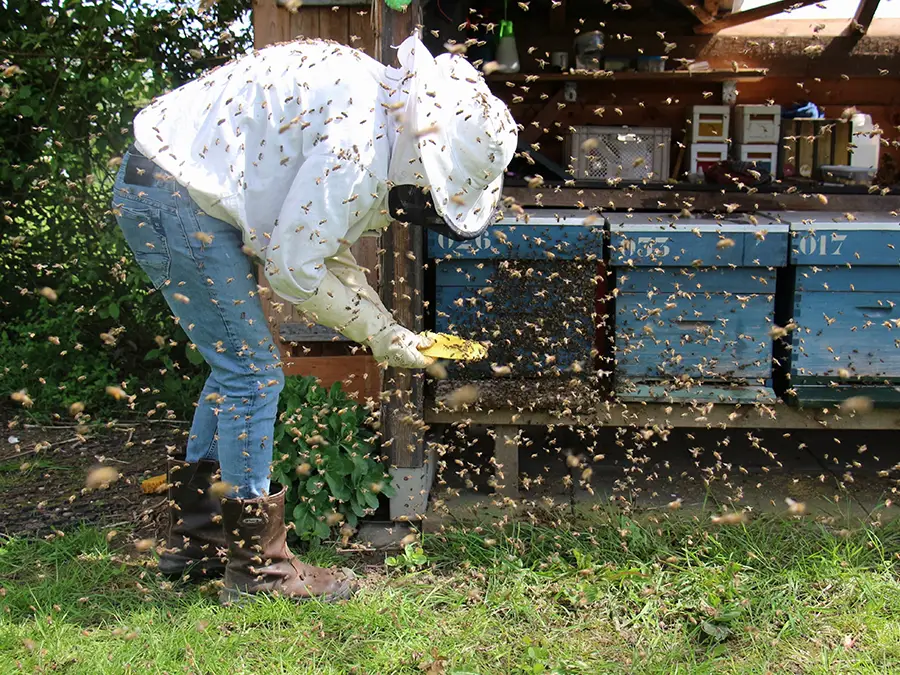
Farmers
You can expect to collect about $200 per 8-10 frame hive for mobile pollination services to farmers. Depending on the crop, one to two hives per acre is needed, so the demand for pollination services in very high. In fact, until the pandemic hit, pollination services were the top source of income for bee farmers and are back on their way to recovery as the number one spot.
There are more than 100 crops in the US that depend on pollination services. These services add an estimated $18 Billion in revenue to farmers. The biggest users of pollination services are almonds, non-citrus fruit trees, berries, melons, and squash.
You can start local with a pollination operation through your county extension office, however many commercial migratory beekeepers transport their hives across the US to pollinate crops. A thriving hive is a lot of work to manage year-round, so most farmers opt to rent hives for pollination.
You can do the work to develop connections with farmers yourself, but if you are transporting bees across the country, the resources you would put into finding the right connections would likely not be worth it. Instead, you can use a brokerage service that connects farmers and beekeepers. This is especially common in the almond industry.
The benefit of working with a broker is not only a steady source of income for your hives, but they also help manage contracts between growers and beekeepers, inspect hive health, and advise growers in bee-safe insecticide uses.
The “gentleman’s handshake” is the most common method of setting an agreement between bee farmers and growers of cranberries, apples, blueberries, and pumpkins. Though it’s common, it’s not a good idea to provide pollination services without a written contract because miscommunication and assumptions can easily get you in trouble. This is my recommendation for a sample pollination contract.
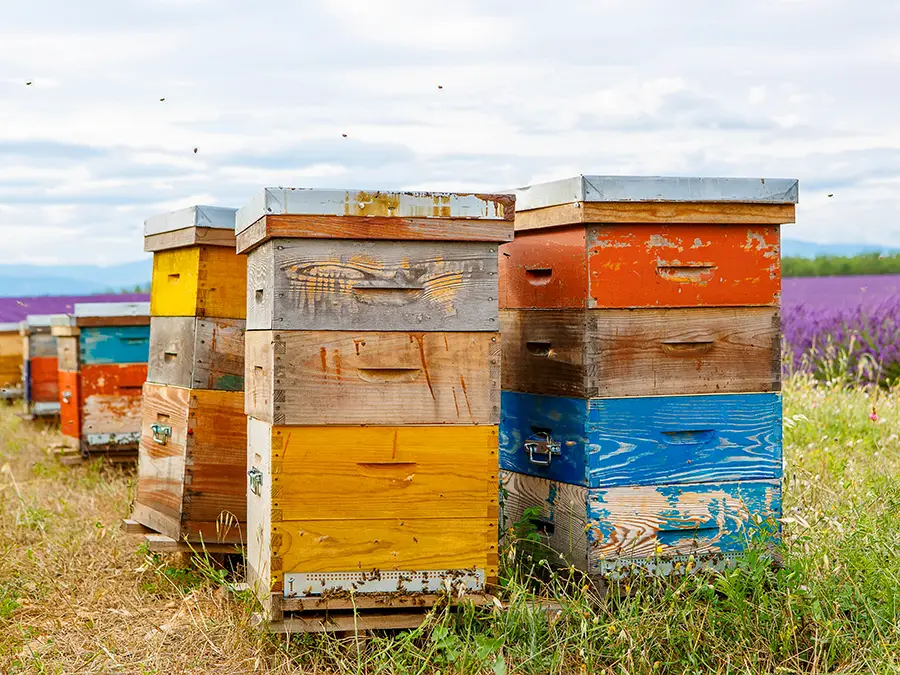
How to Start a Bee Farm
If you are interested in starting a bee farm, the best step for you to take is first to become a bee hobbyist. Once you have the care and management of your hives mastered, you can begin to sell your products to friends, at farmers’ markets, and by word of mouth. No matter which method you choose, I highly recommend joining your local bee club. They will be an invaluable source of region-specific information, wisdom, networking, and encouragement.
If you don’t have a large property with room to house hundreds of hives, your best path forward in the bee business is to sell bees and beekeeping courses. This requires the least amount of bees of all the methods of beekeeping monetization. It does require some good online marketing skills or an ability to hire someone.
If you dislike online marketing and don’t want to hire someone to help you, you would be best suited to selling bee materials to companies and pollination services to farmers.
If you love working in person with people and with your hands, you would be well suited to crafting your own products and selling them to local customers at farmer’s markets and through other connections. And even if you’re not internet savvy, most people can make good use of Facebook to help reach their local community.
What about you, have you sold any of your bee products before? What worked and didn’t work for you? Share your experience in the comments below.

Leave a Reply